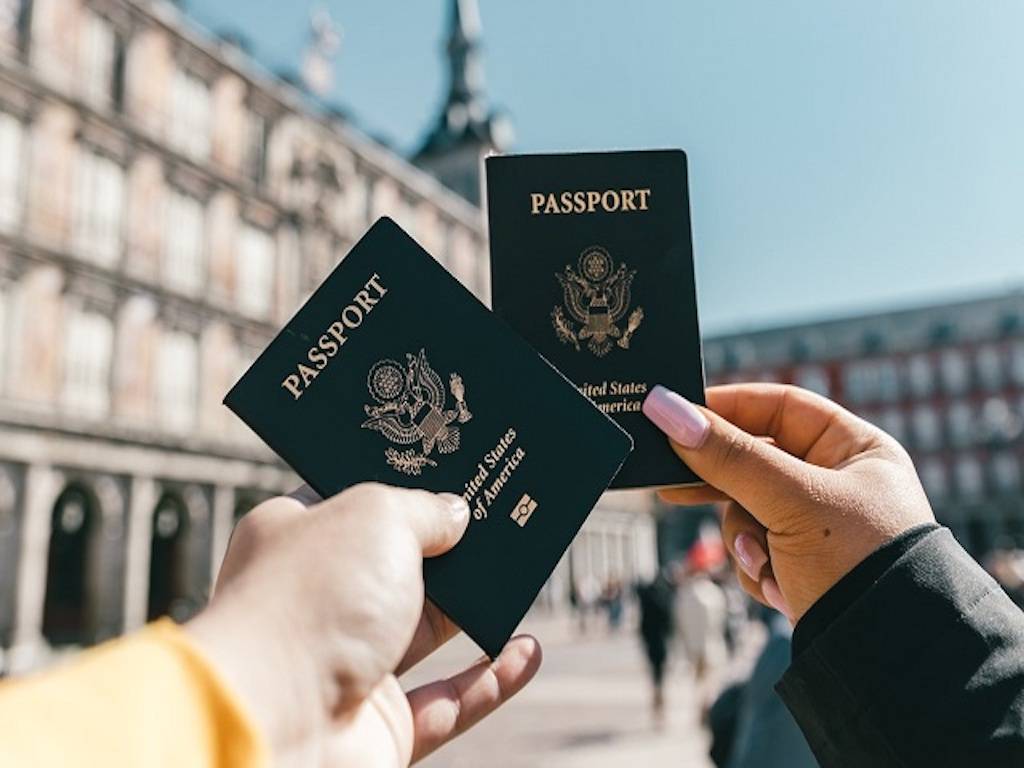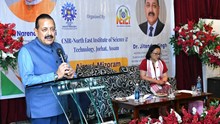
According to the latest results from the Henley Passport Index, India has increased its passport power, rising seven places to 83rd place from 90th place last year. The Henley Passport Index rates all of the world's passports according to the number of visa-free places they allow its holders to visit. The index is based on statistics provided by the International Air Transport Association (IATA).
According to the report, India now enjoys visa-free access to 60 countries across the world, with Oman and Armenia being the most recent countries where Indian passport holders may travel without a visa, up from 58 visa-free destinations in Q4 2021.
With visa-free access to 192 locations, Japan and Singapore placed first on the ranking. Germany and South Korea were placed second and third, respectively, with visa-free access to 190 locations and visa-free access to 189 destinations, respectively. Finland, Italy, Luxembourg, and Spain were ranked third with visa-free access to 189 destinations. With visa-free travel to 188 places, Austria, Denmark, France, the Netherlands, and Sweden came in fourth place. With visa-free travel to 187 places, Ireland and Portugal were placed fifth and fifth, respectively.
After slipping to the eighth rank in 2020 – the lowest spot held by any nation in the index's 17-year history – the passports of the United States and the United Kingdom have regained some of their previously held strength. With a visa-free/visa-on-arrival score of 186, both nations are presently in sixth position.
Impact Of Mobility
Since the index's launch 17 years ago, the report also identified the largest recorded worldwide mobility disparity. Without accounting for temporary Covid-related limitations, passport holders from the top two Asian countries, Japan and Singapore, may now visit 192 countries without a visa — 166 more than Afghanistan, which is at the bottom of the table.
"The raft of punitive Omicron-related restrictions against mainly African nations that U.N. Secretary-General Antonio Guterres described as akin to "travel apartheid" brought this deepening divide in international mobility between wealthier and poorer countries into sharp focus late last year," the report said.
"This is despite the fact that general levels of travel freedom have increased dramatically over the last two decades," it said.
According to the index's historical statistics, an individual may visit 57 countries visa-free in 2006. That number has now increased to 107. Overall, however, there is an increasing divide between countries in the global north and those in the global south, with citizens of Sweden and the United States being able to visit more than 180 visa-free places, while citizens of Angola, Cameroon, and Laos may only visit approximately 50.
Passport Index Is Of Critical Importance
Opening up migratory pathways, according to Christian H Kaelin, Chairman of Henley & Partners and the developer of the passport index concept, is critical for post-pandemic recovery.
"Passports and visas are among the most significant instruments influencing global social inequality since they define global mobility prospects. The borders within which we are born, as well as the documents to which we are entitled, are as arbitrary as our skin colour. Wealthier countries should encourage beneficial inward migration to help redistribute and rebalance people and material resources throughout the world, according to Kaelin.
"The costly conditions connected with foreign travel institutionalise inequality and prejudice," said Mehari Taddele Maru of the Migration Policy Centre. Covid-19 has exposed and worsened the alarming imbalance in worldwide migration between the developed countries and its impoverished counterparts."
The pandemic's influence on broader geopolitical patterns in migration and mobility, according to Misha Glenny, an award-winning journalist and associate professor at Columbia University's Harriman Institute. "The very presence of Omicron testifies to a huge geopolitical failure," Glenny said in the study. The chances of such a powerful new strain arising would have been far lower if the United States, the United Kingdom, and the European Union had transferred more money and vaccinations to South Africa. New mutations will have the power to drive us all back to square one until we share vaccine delivery more equally."
"An individual's health and vaccination status are as influential on mobility as their passport's visa-free access," Andreas Brauchlin, an internationally renowned cardiology and internal medicine specialist and member of the SIP Medical Family Office Advisory Board in Switzerland, stated in the report. Being a citizen of the 'wrong' country may severely limit your access to business, health, and medical services, as well as make travel impossible for some."
















